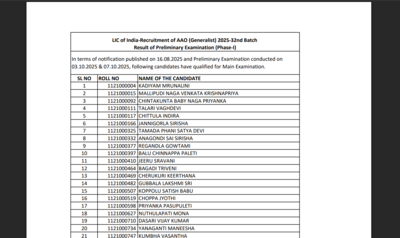UMich Law professor files Supreme Court petition over alleged racial and gender discrimination

Laura Beny, a professor at the University of Michigan Law School, has petitioned the United States Supreme Court to review her case against the University, alleging racial and gender discrimination in disciplinary proceedings led by former Dean Mark West. The petition, filed earlier this week, questions the legal doctrine of “honest belief” that shielded University officials in earlier rulings and seeks to restore jury oversight in such disputes.Beny’s lawsuit, first filed in 2022 and dismissed by the US District Court for the Eastern District of Michigan in 2024, was subsequently upheld by the Sixth Circuit Court of Appeals in July this year. She now seeks to challenge what her legal team describes as a constitutional issue with far-reaching implications for employee rights and institutional accountability.
A case that tests the limits of faculty discipline
Hired in 2003, Beny became only the second African American woman to secure a tenure-track position in the Law School’s history. According to The Michigan Daily, the disciplinary action at the heart of her lawsuit began in 2018, when she was issued a notice for “disruptive conduct,” followed by another in 2019 for “verbal abuse.” A third notice was issued in March 2022, citing abandonment of classes and inappropriate communication with colleagues.University officials maintain that the measures were justified, citing what they described as Beny’s “abandonment of the classroom” and “retaliation against students.” However, records show that on 15 April 2022, Beny was formally approved for medical leave under the Family and Medical Leave Act, covering the period in which she had informed students she could no longer teach.Her legal team argues that this approval undermines the University’s justification, suggesting the disciplinary decision was pretextual and discriminatory, The Michigan Daily reports.
The ‘honest belief’ rule under scrutiny
Central to the case is the “honest belief” rule, a judicial doctrine protecting employers from discrimination claims if they held a sincere belief in the stated reason for disciplinary action. The Sixth Circuit Court upheld Michigan’s reliance on this principle, finding no evidence that decision-makers were aware of Beny’s medical leave when issuing the sanctions.In the petition, Beny’s lawyers contend that the rule has evolved into what they call a “systematic denial of constitutional protections,” allowing judges to determine credibility and motive without jury consideration. Lead counsel Amos Jones told The Michigan Daily that the case raises “serious questions about the erosion of the Seventh Amendment right to a jury trial,” arguing that disputed issues of intent should be evaluated by a jury rather than resolved as a matter of law.
Conflicts of interest and contested motives
The petition also introduces new evidence questioning the impartiality of the University’s disciplinary process. Expert testimony from Richard Painter, former Chief White House Ethics Lawyer, alleges that West’s prior communications with Beny were “sexually suggestive,” creating a conflict of interest that should have disqualified him from further involvement, The Michigan Daily reports.Painter’s assessment, cited in the petition, refers to emails in which West reportedly remarked on Beny’s appearance and made personal comments about her family. These exchanges, the petition argues, raise doubts about whether his “honest belief” in the disciplinary justification was credible.
Standing alone
According to filings reviewed by The Michigan Daily, Beny was the only tenured faculty member disciplined by West during his decade-long tenure as dean. In her email to the publication, she described her decision to continue teaching while pursuing the case as an act of principle, asserting that she had been “singled out for disparate treatment” after filing internal complaints with the University’s Equity, Civil Rights and Title IX Office.Her counsel, Jones, said the petition aims not only to redress individual harm but also to challenge what he characterised as a wider institutional problem. “The University of Michigan may believe this is resolved in the courts,” he said, “but the issue of accountability in higher education is far from settled.”






